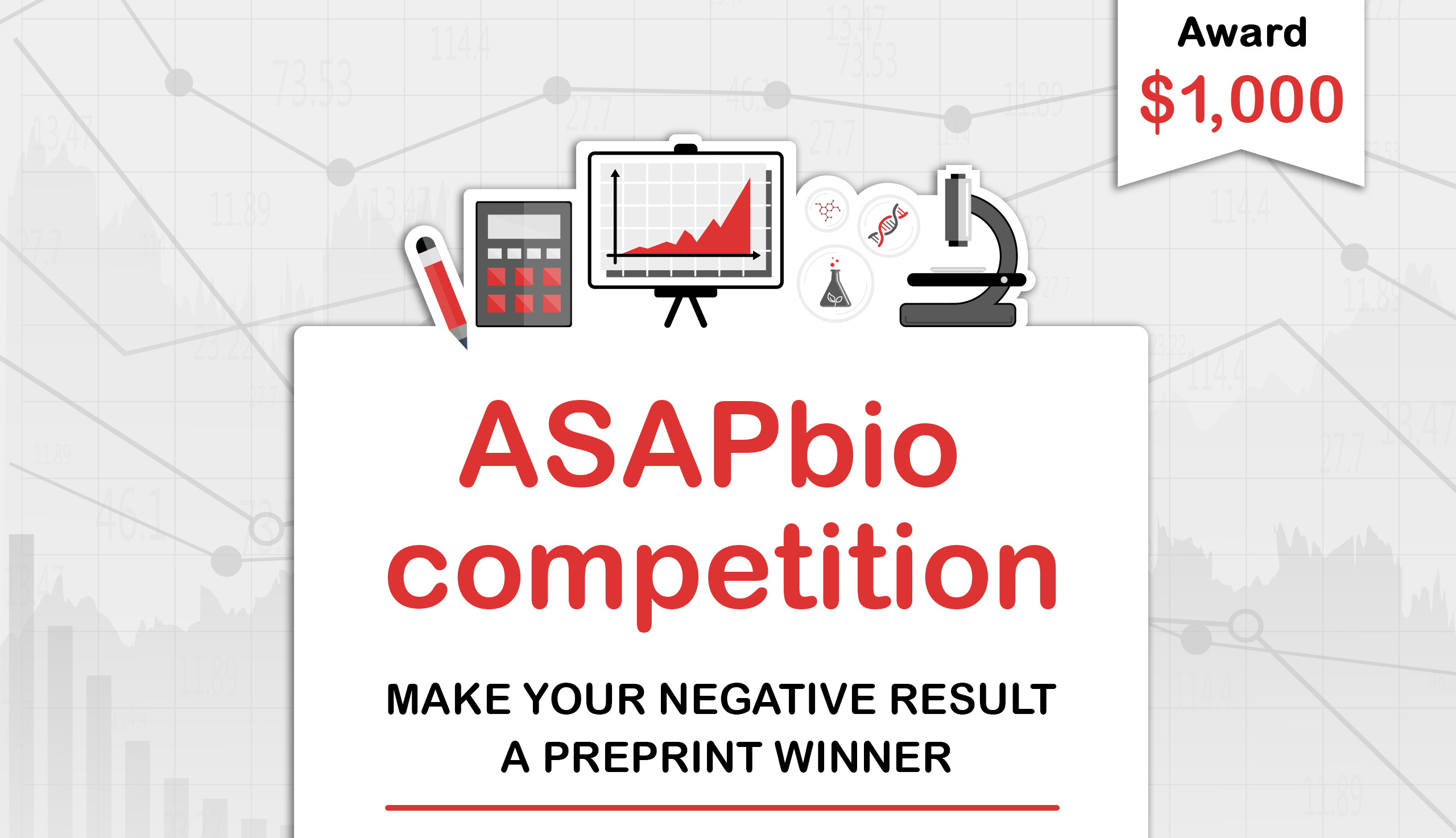Do you have data buried in your lab notebooks that did not prove your hypothesis but would be useful to your scientific field? Or perhaps inconclusive results due to technological limitations which would be relevant for others to avoid duplicating efforts?
Preprints allow sharing of all research works in a flexible format; this includes negative or inconclusive results. By posting those valuable results as a preprint, you can share your work with the community and help address publication bias.
Through our competition, we want to celebrate the value of negative/null scientific results and the use of preprints to share that important work with the community. If you have posted a preprint reporting negative or inconclusive results, or are planning to post one, we want to hear from you!
Eligibility
We invite the submission of preprints that report a negative/null or inconclusive result as the main finding. The preprint may report results that did not validate the initial hypothesis, results that did not replicate previous published findings, or inconclusive results that highlight uncertainty about a particular methodology or line of research.
To be eligible for the competition, preprints must meet the criteria outlined below:
- Report primary research results in any field of experimental or computational biology, including studies involving cell, plant, or animal models, or bioinformatics or translational approaches. Purely theoretical studies and those involving human subjects research are not eligible.
- Preprints posted any time from 1 January 2022 until the competition closing date
- Must contain a clear research question or rationale and a full description of the experiments and/or analyses completed.
- There is no minimum number of figures/tables, provided that the experiment(s) are well justified and reported and rigorously interpreted.
- The paper must be in English.
- Manuscripts that have been subsequently published at a journal are eligible, but the work must have appeared first in the form of a preprint.
We particularly encourage submissions by early career-researchers who are first authors or co-first authors on preprints.
Examples of preprints that fit the scope of the competition include:
The Vibrio vulnificus stressosome is dispensable in nutrient-replete conditions
Evaluation of the DBA/2J mouse as a potential background strain for genetic models of cardiomyopathy
How to enter the competition
Submit your entry via this form.
Deadline: 14 January Extended to 31 January 2023.
Winners
The winning preprints will:
- Receive an award of $1,000
- The authors of the preprints will be highlighted in a series of ASAPbio blog posts and video testimonials
Review criteria and process
A panel representing ASAPbio Fellows, ASAPbio representatives and scientific experts will select up to three winners from the submitted preprints.
The evaluation of preprints submitted will involve the following items:
- Perceived value to the field, regarding resources or time saved by the community, or value in correcting current practices
- Clarity
- Alignment to open science and reproducibility: open data, code, protocol, associated resources
Judges:
- Beth Evans, University of California, Irvine
- James Fraser, University of California, San Francisco
- Kanika Khanna, University of California, Berkeley
- Ksenia Kuznetsova, Max Planck Institute of Molecular Cell Biology and Genetics
- Thabiso Motaung, University of Pretoria
- Dyche Mullins, University of California, San Francisco
- Nandakumar Narayanan, University of Iowa
Any questions about the competition? Please contact iratxe.puebla@asapbio.org.








2 Comments